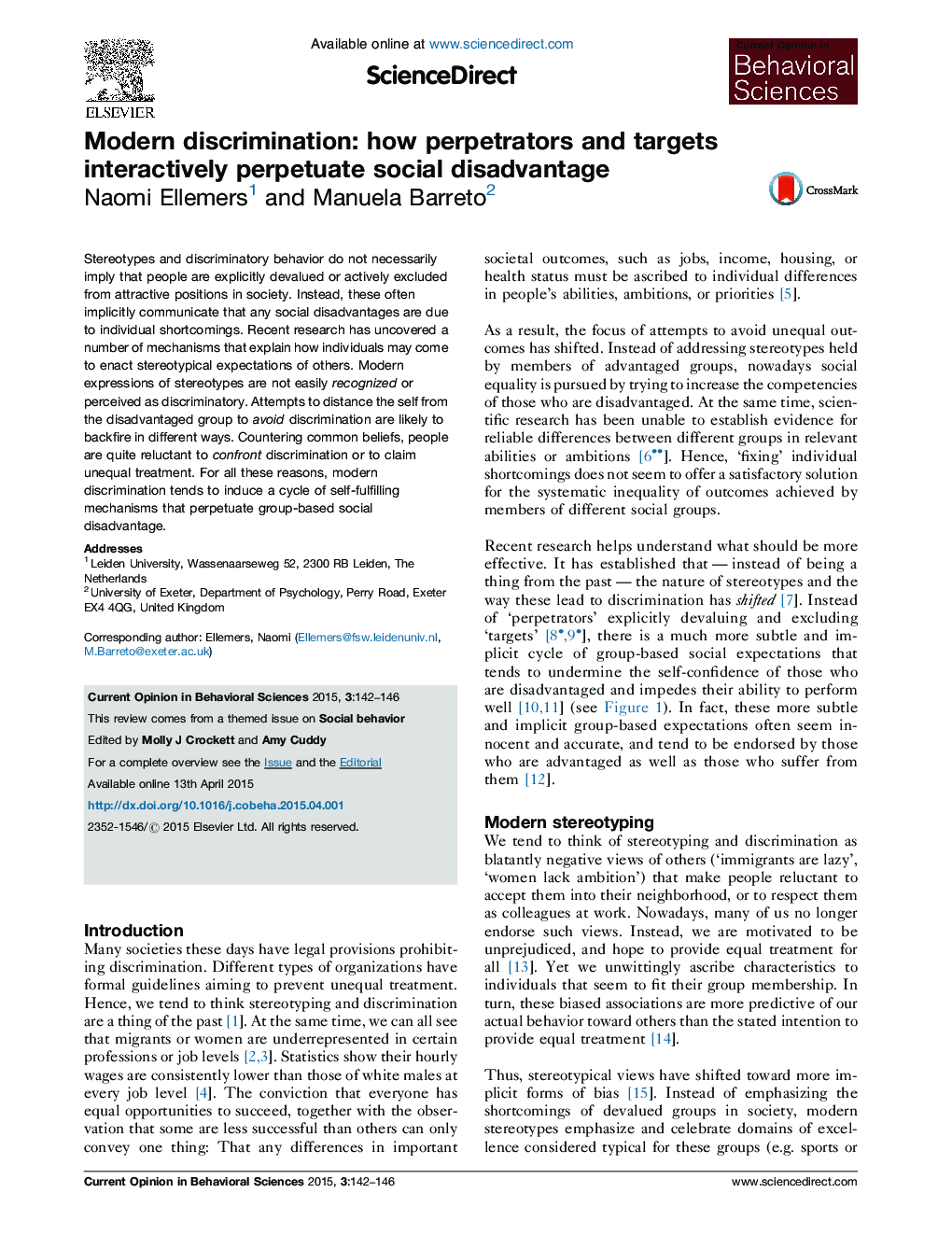| Article ID | Journal | Published Year | Pages | File Type |
|---|---|---|---|---|
| 4316399 | Current Opinion in Behavioral Sciences | 2015 | 5 Pages |
•Equal opportunity beliefs help maintain group-level outcome differences.•Perceiving discrimination is impeded when stereotypes are communicated implicitly.•Avoiding discrimination requires people to denounce part of their identity.•Confronting discrimination often results in victim blame rather than system change.
Stereotypes and discriminatory behavior do not necessarily imply that people are explicitly devalued or actively excluded from attractive positions in society. Instead, these often implicitly communicate that any social disadvantages are due to individual shortcomings. Recent research has uncovered a number of mechanisms that explain how individuals may come to enact stereotypical expectations of others. Modern expressions of stereotypes are not easily recognized or perceived as discriminatory. Attempts to distance the self from the disadvantaged group to avoid discrimination are likely to backfire in different ways. Countering common beliefs, people are quite reluctant to confront discrimination or to claim unequal treatment. For all these reasons, modern discrimination tends to induce a cycle of self-fulfilling mechanisms that perpetuate group-based social disadvantage.
